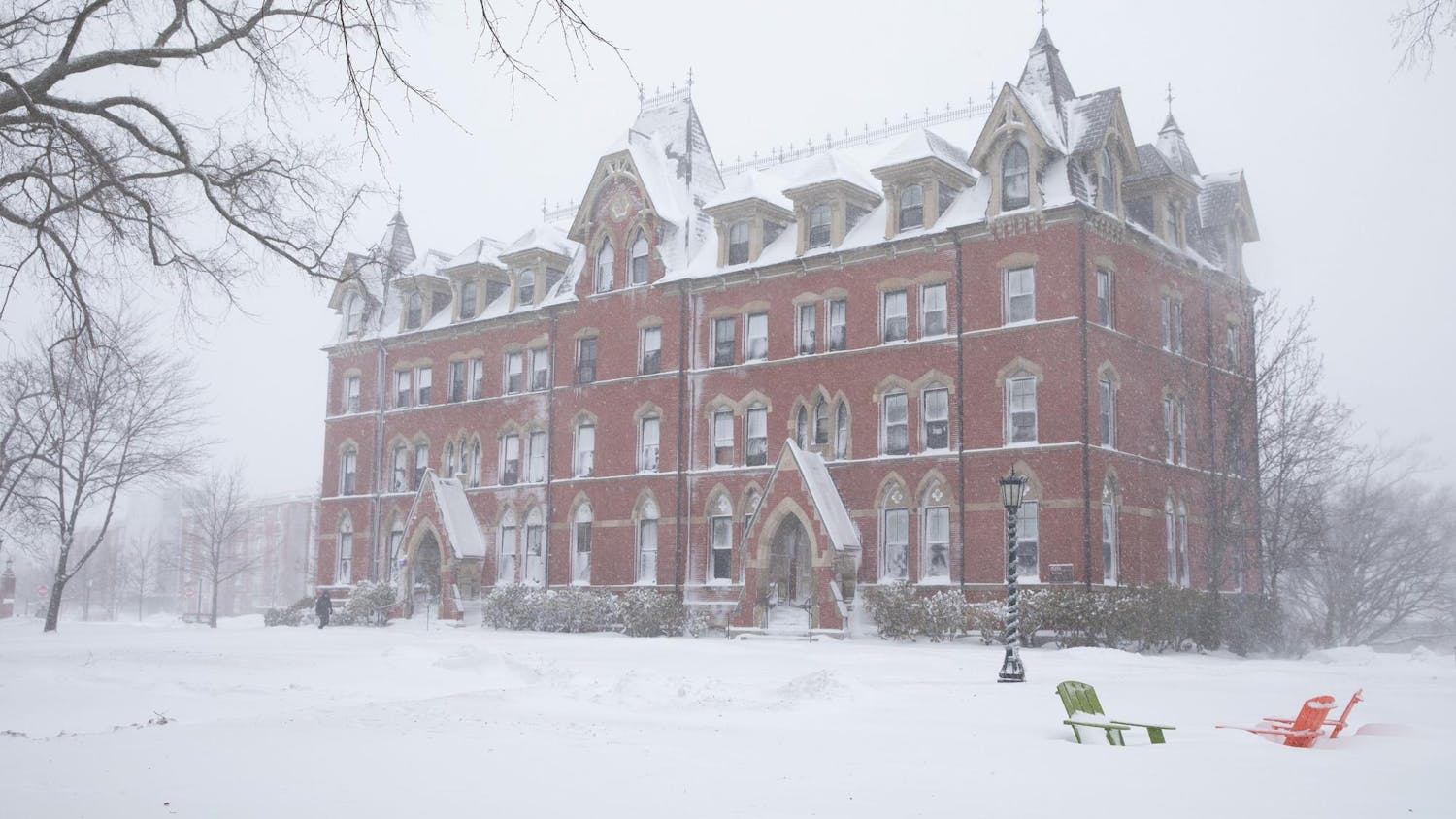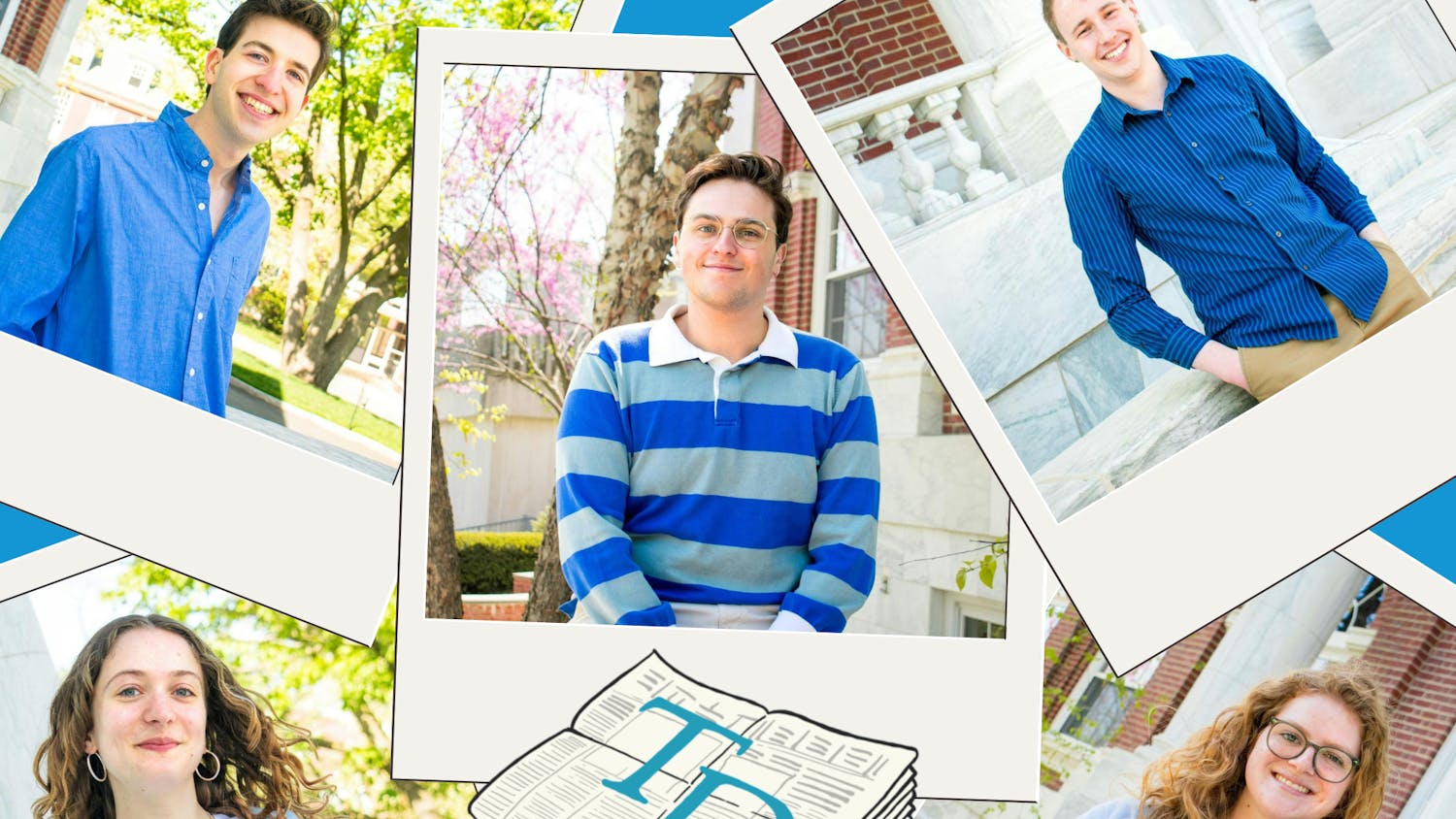The Tufts Effectiveness in Administrative Management (TEAM) Initiative will launch Tufts Support Services (TSS), a new organization that will centralize human resources and financial services, this December to improve administrative efficiency and expertise.
University President Anthony Monaco and Executive Vice President Patricia Campbell announced the upcoming launch of TSS to faculty and staff on Sept. 8.
“The TSS model builds on Tufts’ tradition of managing resources carefully to maintain our financial strength, and responds to feedback received through our Excellence at Work survey, in which many employees told us that we should reduce red tape and streamline administrative processes,” Monaco said in the announcement.
He added that TSS reflects the recommendations from the survey and strives to effectively coordinate administrative work, while reducing unnecessary processes and technology.
Dick Doolin, who was recently named senior director of TSS, said the organization would consist of a 40-member staff that provides human resources and financial and transactional support with physical presences on all three campuses. TSS will operate under the umbrella of the Office of the Executive Vice President.
“This is a new and exciting position for me, to bring in a new organization that’s going to help provide administrative support to the university,” Doolin, former director of Financial Services who has worked at Tufts for over 30 years, said.
The establishment of TSS will allow a smaller set of employees to develop expertise in specific areas of university procedure, bringing support to staff and faculty at a more efficient rate, Campbell said.
As leader of the TEAM Initiative, Campbell and her team spent the past two years looking for ways to make campus administration run more efficiently. TEAM’s research found that various offices such as human resources and finances were performing the same tasks across Tufts’ schools.
“That created an obvious opportunity to see if we could be more efficient by eliminating some of the redundancy,” Campbell said.
Campbell said that some units within the university only have one staff member performing the tasks that TSS will take over, leading to problems if that staff member is unavailable.
“People are left with no way to get their work done, so in this kind of consolidation it will help particularly smaller units to be able to always get support for certain kinds of basic transactional things,” she said.
The decentralized performance of these tasks also makes it harder to make changes to university procedures, Campbell added.
“When we want to take an activity and change it, we need to train close to a thousand people who do a component of that transaction or that function, and it’s just not efficient,” she said.
The creation of TSS may lead to the elimination of some current positions across the university, especially if TSS staff overtake most of the responsibilities performed in a current position, according to an announcement from the TEAM Initiative on Aug. 29. School, division and department leaders will be deciding how to reduce or cut positions, depending on how much time positions spend on tasks that TSS will perform upon its launch.
Doolin and TEAM intend to minimize job losses by giving internal candidates the best opportunity possible to apply for TSS positions.
“That’s our number one goal in terms of looking to fill positions,” Doolin said.
He and the TEAM project have strived to communicate the availability of these new positions across the university, as Doolin hopes to see the TSS hiring process conducted quickly.
“We’ve had a real extensive communications effort as part of the TEAM project, working with our communications and university relations office, in addition to the staff and support services,” he said.
Campbell said TEAM has met face-to-face with campus managers and deans to share information about what employees can expect from the transition to TSS, as well as provide workshops for current university employees to assist them in the TSS application process.
“We are doing a lot of things so that we can do this in an incremental and careful way for our population,” Campbell said.
Campbell said TEAM has worked to provide new information about the TSS transition as soon as it becomes available in order to be as transparent as possible.
Throughout the process, Doolin explained that the organization will be able to give more information to the community and will focus on training staff to be experts in what they do so that they can provide a certain level of support.
“Tufts is a community ... and we want to continue with that community spirit,” Doolin said. “It is a little bit of change in the community ... and I think that’s something people will have to work with us on."
More from The Tufts Daily





